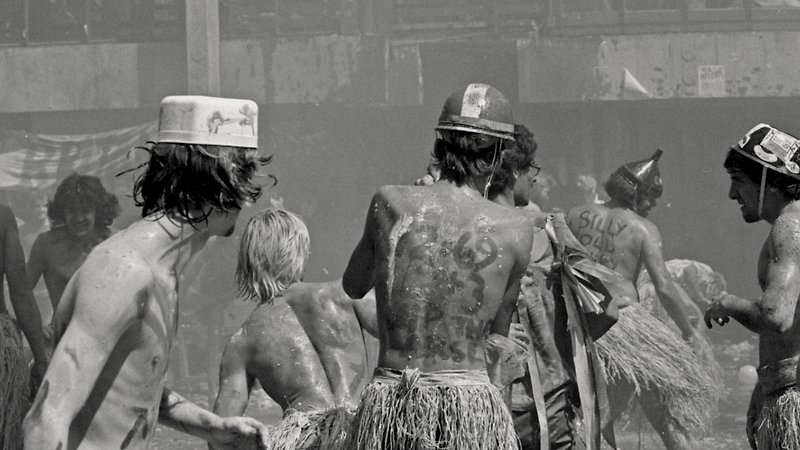In 1979, group of young Māori and Pasifika activists sought to stop Pākehā students at the University of Auckland performing a parody of haka each capping week. Unfortunately, the consequences for those activists were severe – many were convicted of crimes. Director Katie Wolfe uncovers this largely forgotten event in our history with interviews from both in this resonant and thought-provoking documentary.

Screened as part of 2024
The Haka Party Incident 2024
Houhia ki te rongo, horahia ki te kura.
Te kura nā Te Whiti.
Te rongo nā Rongomai.
Kia murua ngā hara o mua,
E te tai o awatea!
“The last New Zealand war took place in 1979. It lasted three minutes.”
This simple opening credit to The Haka Party Incident propels the viewer into Auckland 1979 to a protest that was until recently largely forgotten.
It covers the day when a group of young Māori and Pasifika activists, later named He Taua, sought to stop Pākehā engineering students at the University of Auckland performing a parody of haka each capping week. By then the “Haka Party” had annually evolved into mayhem as these students, many of them drunk and dressed in grass skirts, staged "hit and run" performances of their "haka" throughout central Auckland.
Written complaints in previous years had been consistently ignored when He Taua decided to take more direct action in 1979. Headlines at the time described it as a “gang rampage” with “students bashed”, and several of the activists were convicted of crimes. But the Haka Party has not been held since.
The Haka Party Incident was rescued from historical oblivion by writer and filmmaker Katie Wolfe – originally as a play commissioned by Auckland Theatre Company and first staged in 2021.
The film cleverly intertwines multiple interviews from both sides of the confrontation, both recent and from around the time of the incident.
For members of He Taua, many who became seasoned activists around protests including the Springbok Tour and Treaty of Waitangi claims, there’s gentle joviality as they recall they didn’t have much of a plan in place, and a quiet sense of pride for what they achieved.
For the engineering students there’s an underlying nervousness as they defend their involvement in the haka party – a “fun” tradition of which they had no knowledge of the offence that it caused.
Wolfe’s play toured the country last year to great acclaim. Those who saw it can gain further value of the story from the medium of film. Those who didn’t are in for a thought-provoking journey back in time. — Moerangi Vercoe